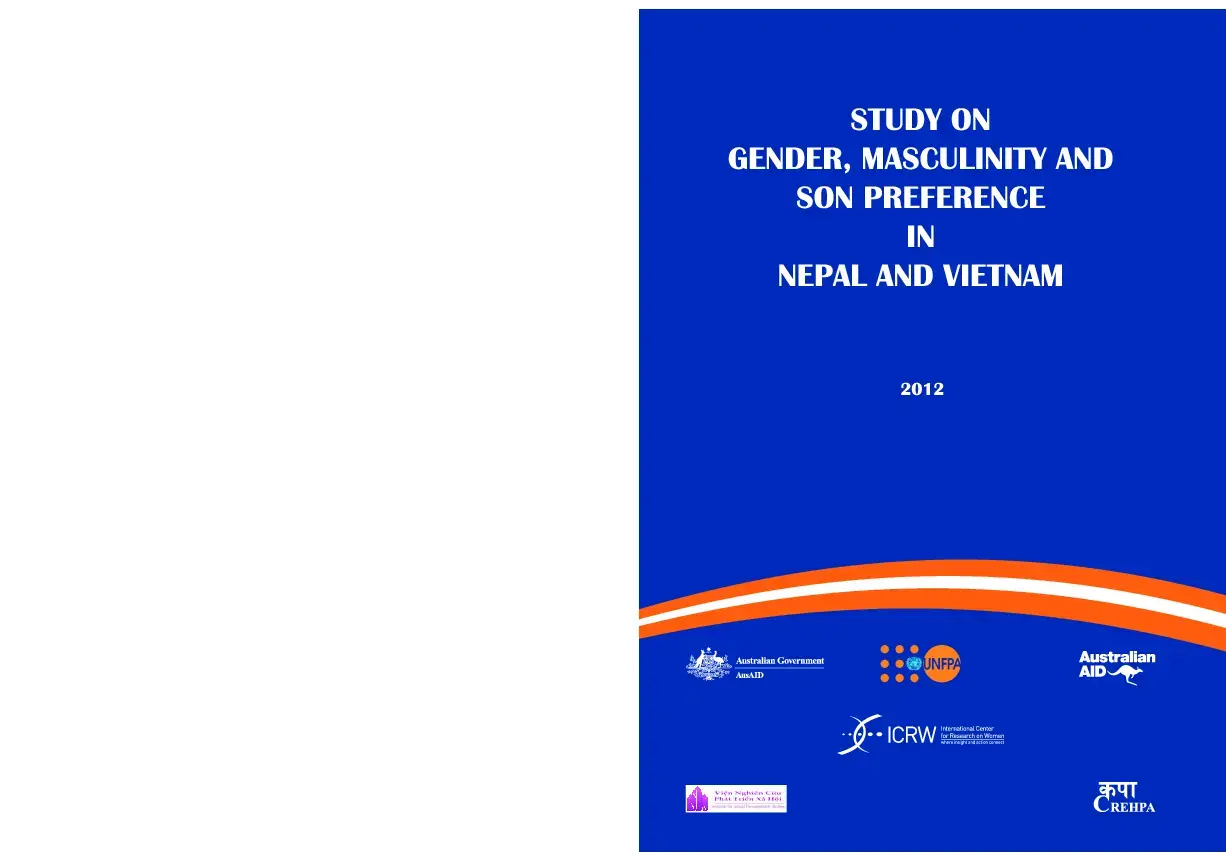This study was first of its kind in Nepal and Viet Nam that explored men's attitudes on a wide range of issues related to gender equality, son preference, the levels and types of intimate partner violence and knowledge and attitude toward laws and policies related to women's right. The study affirms that high son preference, conservative gender roles and inequitable attitudes persist in both countries. There is a need for more comprehensive, long-term and male-targeted intervention programs or campaigns at national and local levels taking into account men's specific socio-economic conditions that influence their preferences. While the levels of knowledge of laws and policies relating to gender equality is high, there is clearly a greater need for enforcement coupled with effective communication not only on the laws but also on the norms underlying the practices that are being legislated. Because of the relationship between childhood experiences of inequality, gender equitable attitudes, son preference and intimate partner violence, early childhood interventions around masculinity and men's role in family are also policy recommendations from this study.
Study on Gender, Masculinity and Son Preference in Nepal and Viet Nam

Publisher
Number of pages
98
Author
UNFPA
Publications
Study on Gender, Masculinity and Son Preference in Nepal and Viet Nam
Publication date
01 January 2012




